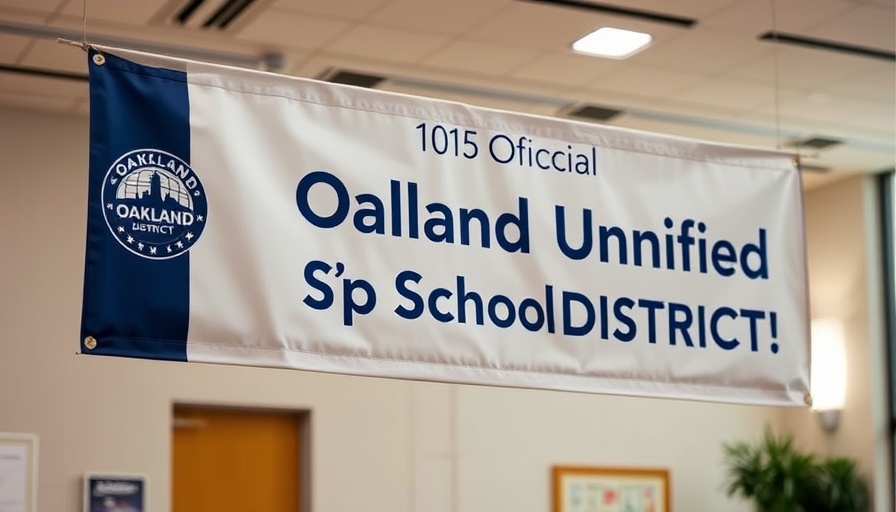
Oakland Unified School District Regains Control after 20 Years Under State Oversight
In a significant milestone for local governance and education, the Oakland Unified School District (OUSD) has successfully exited state oversight, achieving a momentous end to over two decades of receivership. This transition, announced recently, reflects the culmination of extensive efforts to stabilize the district's finances following a troubled past marked by fiscal irresponsibility and significant state intervention.
A Historic Shift: What It Means for Oakland
As of July 1, the OUSD will regain full operational control, enabling it to make critical decisions locally, devoid of state or county oversight. The district’s chief business officer, Lisa Grant-Dawson, remarked, “It’s significant because there’s a big weight that’s lifted from not having that shadow continue to follow you around.” This liberation signifies more than just financial independence; it opens doors for renewed educational policies that directly reflect the community's values and needs.
The Payment of Old Debts: An Ongoing Challenge
The journey to this point was paved with challenges, including a bailout by the state in 2003 that involved a massive $100 million loan. The district has worked diligently to pay off this loan, with annual payments hovering around $6 million, ultimately culminating in a total loan amount nearing $120 million due to accrued interest. As the district steps into its new era of financial autonomy, it is necessary to remember that the remnants of past mismanagement are still present—a projected $30 million deficit looms for the 2025-26 school year.
Federal Funding Uncertainties: A Clouded Future
Looking ahead, the district’s future remains contingent on various external factors, including potential funding cuts from both state and federal sources. With the current Presidential administration advocating for cuts that could threaten K-12 funding, the OUSD finds itself at a crossroads. President Trump's rhetoric around dismantling the U.S. Education Department could strip California schools of critical financial support, making it vital for OUSD to strategize prudently as it regains control.
Trends and Risks in California School Districts
This situation in Oakland is not isolated. Numerous school districts within California, such as Vallejo City Unified, have similarly struggled under state control following financial mismanagement. Vallejo City, for example, regained local control just last week after years of state intervention. The alarming rate of struggles could lead many to question whether any systemic solutions exist to stabilize California's school districts long-term, particularly when attendance—which directly influences funding—continues to decline.
Implications for Educational Quality and Community Engagement
OUSD's transition out of state oversight raises important questions about the future of educational quality in Oakland. With localized control, the district now has an opportunity to engage more directly with the community, fostering stakeholders’ input in decision-making processes. This potential for revitalization breeds an environment ripe for innovation and improvement.
What This Means for Local Residents and Stakeholders
From a community perspective, the shift back to local control can enhance public trust and ownership over educational outcomes. Residents may feel more empowered to advocate for their neighborhoods, driving changes that are responsive to their immediate needs. As community members look at the restructured governance, they are reminded of their critical role in shaping the district's narrative forward.
Actionable Steps for the Oakland Unified School District
To navigate its future successfully, OUSD should consider several actionable insights: identifying sustainable funding sources, enhancing community relations, focusing on enrollment strategies, and implementing data-driven decision-making practices. It may also be beneficial to consult with financial and educational experts who can offer guidance to maintain fiscal health while elevating educational standards.
Hope for the Future: A New Chapter for Oakland Schools
The end of state oversight for OUSD means a new chapter filled with both challenges and opportunities. While a $30 million deficit and potential federal funding cuts pose significant challenges, the regained autonomy enables the district to explore new financial strategies, community engagement efforts, and educational innovations. For the Oakland community, the hope remains that the recent transition breeds a reinvigorated district ready to uplift its students and restore faith in local governance.
 Add Row
Add Row  Add
Add 




 Add Row
Add Row  Add
Add 

Write A Comment